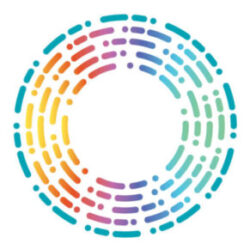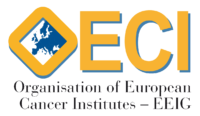Translational ResearchNavigation

General Information
-
Translational Trials

Current clinical trials in the Beaumont RCSI Cancer Centre include CNS (Biomarkers in Glioma), gastrointestinal (COLOSSUS), breast/cervial (PUMA-NER-9501) and breast (Proteomics and Molecular Heterogeneity 09/07). All trials are sponsored by the National Cancer Clinical Trials Network, CTI. There are currently 1,600 patients on translational clinical trial in the Cancer Centre.
The cancer clinical trial 09/07 supports the National Breast Cancer Bioresource (NBCR). The resource was set up by Leonie Young and Arnold Hill at RCSI in 2006 and was formally launched in 2010 by the then Minister for Health, Mary Harney. The resource has >3,500 patients recruited to date. The trial is open in all eight designated national cancer hospitals with dedicated research nurses resourced in four sites. The study is fully GDPR compliant and has HRCDC approval. The biobank holds patient tissue (FF/FFPE, RNA/DNA), serial-blood (plasma/serum) and patient derived (PDX)-models with corresponding clinical data on 7,034 cases from each of the designated cancer hospitals which is monitored with an inventory and sample tracking software system.
-
Pre-Clinical Models

The National Preclinical Imaging Centre (NPIC) is consolidated preclinical imaging infrastructural framework funded by SFI in 3 national universities (UCD, NUIG and RCSI). In RCSI we have established a nationally unique high-resolution micro(μ) computed tomography (CT) facility along with state-of-the-art optical imaging. The Quantum GX2 m computed tomography scanner is a preclinical imaging system, offering the flexibility to enable longitudinal in vivo imaging as well as ex vivo sample scanning. It offers ultra-high resolution (2.3 mm) imaging and high-speed scan time as fast as 3.9 seconds. The IVIS Spectrum optical imaging system from Perkin Elmer has superior sensitivity and is the only system currently available which can perform 2D and 3D bioluminescence and fluorescence imaging. With its with computed spectrum spectral un-mixing, it is ideal for distinguishing multiple bioluminescent and fluorescent reporters.
-
Imaging and Spatial Genomics

A SFI Infrastructure Award provides access to a high- resolution imaging, microdissection and spatial genomics systems. This will facilitate the investigation, isolation and bio-molecular characterisation from single cells from in-vitro models of tumour or brain and also from tissue samples. It will provide new information on the molecular makeup of individual cells including information of the complex tissues and structures they were growing in. This will enable research towards personalised medicine and help in the development of novel diagnostics, therapeutics and biomaterials.
Image: MDST8 cell (colorectal cancer cell line) expressing mitochondrial ATP probe (green) and anti-apoptotic Bcl-xl-Cerulean fusion protein (blue) and stained with a DNA label (red). Live cells prepared and imaged by Heiko Düssmann on an Airyscan 980 during a workshop with Nicholas Sergent, Zeiss UK.
-
Systems Medicine Ireland
The mission of the Centre for Systems Medicine is to provide a translational research centre which identifies genes, proteins and metabolites implicated in human disease. The Centre utilizes bioinformatics, systems biology and machine learning approaches to develop new prognostic tools for the treatment of cancer, neurological and metabolic disorders and to develop more targeted therapies for patients.
The centre also aims to develop new prognostic tools for more ‘targeted’ treatments for these patients and aims to inform clinical decision making and improve patient care. Translational or ‘bench to bedside’ research focuses on developing research discoveries made in the laboratory into point-of-care treatments for patients. The centre provides a wide range of core facilities to researchers including molecular cell imaging, intra-vital imaging, biostatistics, systems biology modelling and proteomic profiling of patient tissues.
The Centre for Systems Medicine is closely linked with clinical collaborators at Beaumont Hospital and internationally and supported through funding from national and international funding bodies, including Science Foundation Ireland, Health Research Board, National Biophotonics Imaging Platform Ireland, European Commission Seventh Framework Programme 7, Higher Education Authority and Enterprise Ireland.

